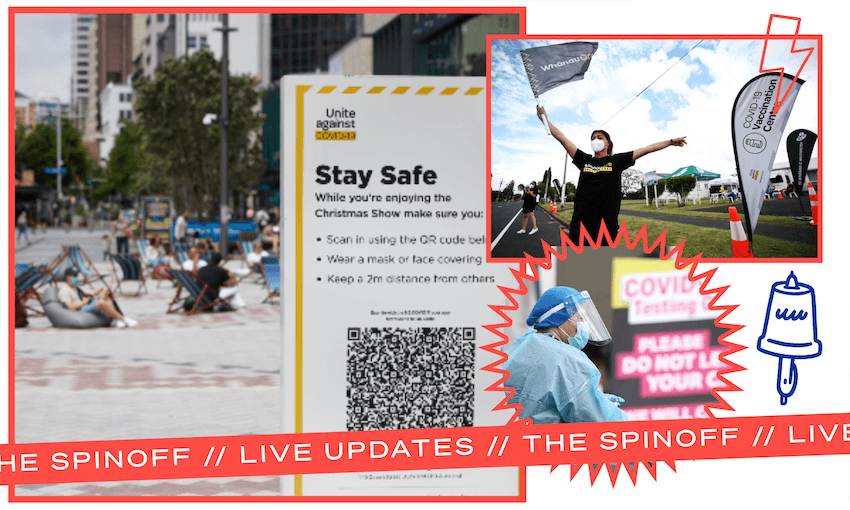A range of measures to combat the highly contagious omicron variant have been announced by the government this afternoon, including reducing the interval between the second dose of the Pfizer vaccine and the booster shot from six months to four and pushing the border reopening out to the end of February.
Covid-19 vaccination will begin for 5-11-year-olds on January 17, the Covid-19 response minister, Chris Hipkins, also announced.
Accelerating the booster rollout follows advice from the director general of health and the Covid-19 technical advisory group, said Hipkins, that “shortening the period between the second and booster doses of the Pfizer vaccine is an appropriate and pragmatic step and is in line with what other countries are doing”.
“While two doses is likely to hold a good degree of protection against severe disease from omicron, a third dose is likely to offer great protection against transmission of Covid-19 and reducing the chance of more serious infections.”
The shorter timeframe will come into place in January. “We’ll continue to follow health advice if it recommends the gap in doses can and should reduce further,” said Hipkins in a statement.
Over 82% of vaccinated New Zealanders will be eligible for a booster by the end of February 2022.
The government is also mandating the booster dose for eligible border and health workers from the end of January, said Hipkins.
“More than half of border workers eligible for a booster at six months have already had it – which is a great response – but we need to get the numbers up quickly,” said Hipkins.
“Cabinet has therefore agreed in principle that where workers are required to be vaccinated, that this mandate will also extend to boosters.”
All others who are under a vaccination mandate must have had their booster by March 1.
Other border measures
The phased border reopening, which was set to begin on January 17, is being pushed out to the end of February, Hipkins announced.
The length of MIQ stay for all travellers will be increased to 10 days, with no self-isolation component. Currently most travellers spend seven days in an MIQ facility, following by three days self-isolating at home.
The pre-departure test requirement for people travelling to New Zealand is being shorted from 72 hours to 48 hours before travel, “in order to assist in picking up more people with the virus before they get on a plane”, said Hipkins.
The government has also sought advice on implementing a requirement for all non-New Zealand citizens entering to New Zealand to have had a booster dose before flying.
Changes to reopening plan
“To slow the rapid spread we have seen overseas, we are pushing out the start of non-MIQ travel until the end of February 2022,” said Hipkins. This is a change from an earlier announcement that fully vaccinated New Zealanders in Australia would be able to travel home quarantine-free from January 17.
“There’s no doubt this is disappointing and will upset many holiday plans, but it’s important to set these changes out clearly today so they can have time to consider those plans,” said Hipkins.
No lockdowns ‘unless absolutely necessary’
Hipkins indicated that lockdowns would be an absolute last resort should omicron enter the community – though a move to red for some regions could be on the cards.
“In moving to the traffic light system, we signalled that we would be adjusting to more of a reactive stance when it came to protective measures and would apply them when case numbers grew and the health system came under pressure,” said Hipkins.
“Omicron has changed that. When it does arrive, we expect that it will spread fast, and that’s what we’re seeing in other places. To slow that spread, we may use the red traffic light settings earlier on. That will give us the best chance to avoid returning to more restrictive alert level settings.
“It is not our intention to move to lockdowns unless absolutely necessary in the event of a widespread outbreak where our health system comes under considerable strain – and even then the strong preference is for the lockdown to be highly targeted.”
